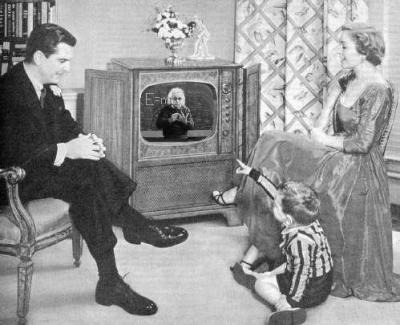
Act I: In which I discuss the rule using dumb analogies and dirty language, ramble about exceptions to the rule while getting progressively more boring, pose problems to the rule based on my distorted understanding of the Bible (some might call it quaint), and complain about propositional theology like a düsseldorf (wait a second, isn't that a city?).
Every time I read (or reread) Robert Farrar Capon I get smacked with something new. Today it came from Ch. 13 of Hunting the Divine Fox, where I was reminded that although there is talk in the Bible of a real place called hell, Christ wants to redeem everyone. Like coupons....at Safeway.
So while we're all little coupons on our way to coupon hell (I should never have touched this analogy), Jesus wants to redeem us like we're going out of style. He wants us, and badly. So badly in fact that he was willing to endure some crappy (aka, shitty; aka, whoa I'm swearin') things to prove it.
And I, when I am lifted up from the earth, will draw all people to myself. -- Jesus, in John 12:32
Notice that Jesus says he will draw all people to him. All. Everyone. You and you and you and you and you. You, too. Regardless, theologians throughout the ages have theorized about who gets into heaven and who doesn't. Orthodoxy (that branch of the church that beats unpopular opinions to a bloody pulp) has come to the conclusion that most people, having not heard the Gospel story, will be going to hell. In their humanity, most orthodox theologians (again, the "winners," not those chilling in Constantinople) felt a little guilty saying that, because it's a pretty big pill to swallow. So some began making exceptions, that while lacking direct, Biblical support, seemed in keeping with the merciful nature of God.
The OT Jews were the first exception, because of their faithfulness in keeping the Mosaic Law. Some theologians went even further, and decided that even Jews who stuck with the Law after Jesus got to go to heaven, too.
Next came kids and babies. While no one is willing nail down a specific cut-off date/IQ, most theologians like to think that children and the child-minded who die before cognitively grasping the concepts of sin, grace and forgiveness don't deserve the punishment of hell, since they never had a real chance to "repent" in the first place.
Somewhere along the line, we started giving smart people "get-out-of-hell-free" cards, too -- like the Greek philosophers, who reasoned their way to something like the Christian concept of God (sort of). Because if they had heard of the Christian God, they would have immediately recognized and accepted him. Don't freaking argue with Aquinas. DON'T.
Running with that little bit of arrogance, theologians began arguing that people of all faiths who pursue God as their religion understands him/her/it will get into heaven, too. For they would (quite obviously) accept our God in addition to their own faith, had they ever heard of him (quite obviously).
It's not much of a leap from there to letting all the "good" or "moral" people in as well, from the beginning of homo sapien sapien to the end of time, regardless of their actually hearing of Jesus. For so, as you ought to know by now, if they had heard the Gospel, in its entirety, as "good" people they would have surely accepted it (quite obviously).
Problem. Rut-tut-tut-tut-tut. We've extended the goodness of God past Scriptural truth. "There is none good, no not one." (Rom. 3:10 - Paraphrased, naturally.)
So why don't the elect just drop everyone else into hell on their way to heaven? Because remember, Christ desires all people to be saved (I Tim 2:4), and is actively drawing them all to him through the power of the resurrection and ascension (Jn 12:32). And I, when I am lifted up from the earth, will draw all people to myself.
For the Classical Theist/Calvinist, these verses refer only to the elect. We read them in light of other, more straightforward proof texts -- propositional Scriptures, less muddled by context or "hyperbole". As if there were a hiearchy to the way Biblical comments on human freedom functioned. "Statement A is of more import than Statement B because A is made propositionally and logically precedes the baser nature of B."
Hogwash (see, I don't have to swear). Christ never said he was drawing the elect to him. If that's what he really meant, he would have let us know. If it were that true and important to the Christian faith, Paul would have come right out and told Timothy that God our Savior desires all of the chosen/elect to be saved and come to the knowledge of the truth.
But Paul and Jesus don't say that. They say all people. And because it is all people, this is where the importance of human freedom comes in.
It's also where I'm going to stop for tonight.
Signed, Morrissey
Monday, February 28, 2005
Hell and human freedom. Bits of theology that really aren't all that new.
Posted by
jonny
at
12:19 AM
![]()
Subscribe to:
Post Comments (Atom)




No comments:
Post a Comment